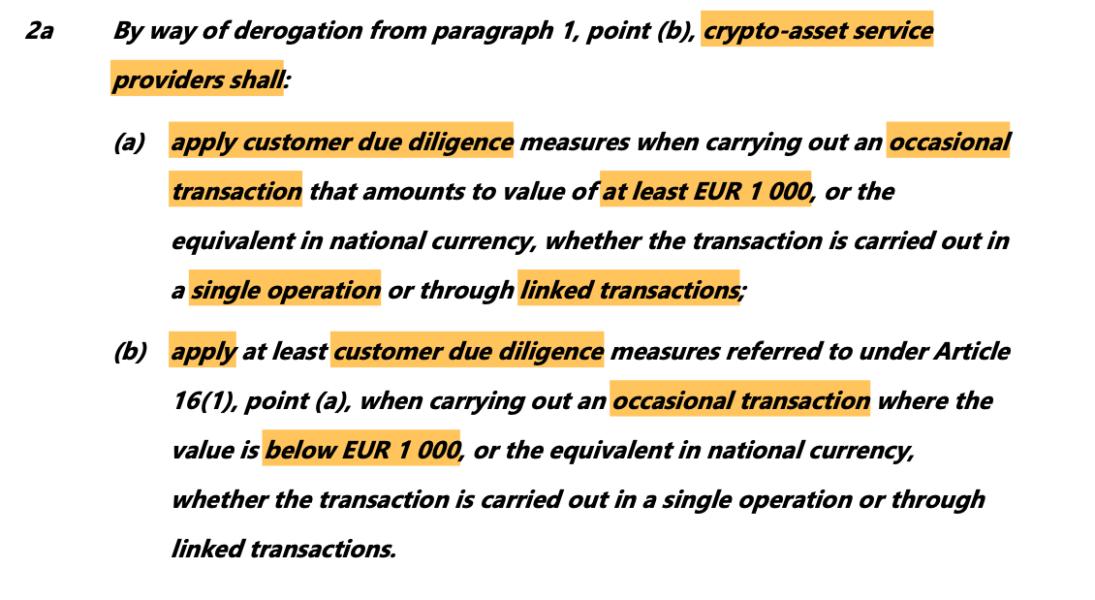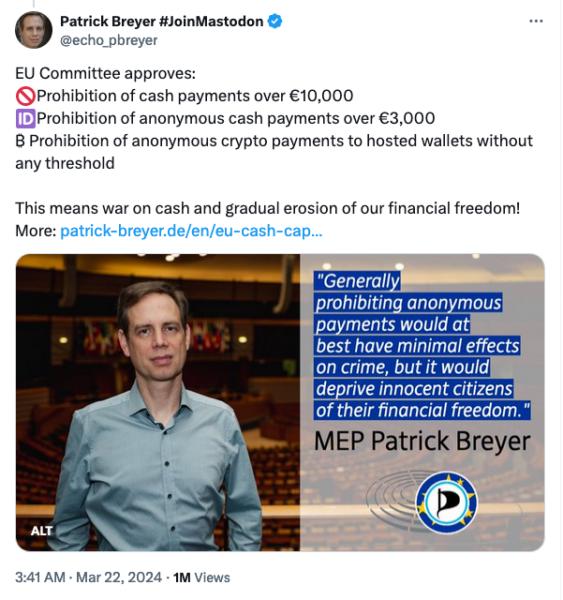EU scraps proposed $1K payment limit for self-custody crypto wallets — TradingView News

Correction: This article was updated to correct an inaccuracy stating the new EU laws banned anonymous crypto transactions.
A majority of the European Parliament’s lead committees have scrapped a 1,000 euro ($1,080) limit on cryptocurrency payments from self-hosted crypto wallets as part of new anti-money laundering laws.
On March 19, the European Union’s Economic and Monetary Affairs Committee and the Civil Liberties, Justice and Home Affairs Committee passed the Anti-Money Laundering Regulation (AMLR), which the European Council and Parliament provisionally agreed to in January.
An earlier proposal that saw businesses limited to 1,000 euros if using a self-hosted crypto wallet to transact was removed along with a provision that aimed to implement identity checks on self-hosted wallets receiving funds.
However, crypto exchanges, called crypto asset service providers (CASPs) in the EU, must perform “customer due diligence” — identity verification checks — on users who carry out business transactions of at least 1,000 euros.

The law works alongside the crypto-focused Markets in Crypto-Assets Regulation (MiCA) laws and others to cement existing prohibitions on CASPs from providing accounts for anonymous users or for privacy coins such as Monero (XMR), which hide information about transactions.
CASPs must also “apply mitigating measures” to transfers between their platform and self-custody wallets — where users hold their private keys — which include at least verifying the identity of the exchange wallet holder where funds from a self-custody wallet were sent.
The laws limited cash payments to $10,800 (10,000 euros) — with EU member states able to set lower limits — and banned anonymous cash payments over $3,240 (3,000 euros).
The AMLR is expected to be fully operational within three years — sometime in 2027 — after it gets approval from the EU Council and the European Parliament plenary which next sits on April 10.
In a March 21 X post, Pirate Party Germany European Parliament member Patrick Breyer called the new laws a “war on cash.”

In a press release, Breyer outlined his opposition to the bill, saying it compromises economic independence and financial privacy. He said he considers the ability to transact anonymously a fundamental right.
Update (March 25, 1:15 am UTC): This article was updated to correct an inaccuracy and provide further information on the crypto-related law within the AMLR.






